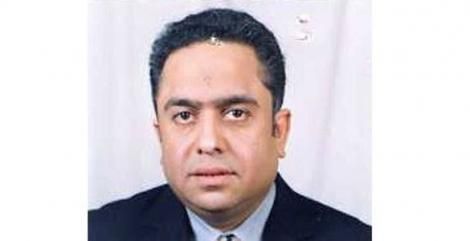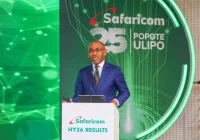After years of marshaling every resource at his disposal to fight extradition to Kenya, businessman Yagnesh Devani’s proverbial nine lives have come to a screeching halt.
Mr. Devani, the billionaire businessman who was has been in and out of British courts since being arrested in 2011 is a wanted in Kenya for his infamous role in the Ksh7.6 billion Triton Petroleum Scandal that left investors to their devices after he released oil stock from the Kenya Pipeline Corporation’s (KPC) tankers without the requisite consent from the financiers.
The livid investors raged at the government triggering a chain of reactions that saw several high level heads roll as the saga threatened to turn to an international spectacle due to lobbying by the foreign investors.
The British Court of Appeal via Lord Justice Underhill last week dismissed Devani’s prayers seeking to stop his extradition to Kenya after he submitted that he stood no chance of a fair hearing and the possibility that he would end locked up in one of the country’s deplorable prisons.
Devani argued his point by giving the example of child trafficker Gilbert Deya who was extradited to Kenya in 2017 but a suitable prison for him wasn’t forthcoming.
He further argued that there were widespread cholera cases in Kenya in 2015 but the appealate court dismissed the argument ruling that no such cases had been reported at the Kamiti Maximum Security Prison where Devani would be held once extradited.
Devani is a wanted man in Kenya where he stands to face 19 counts of fraud for the 2008 scandal that nearly subjected Kenyans to lack of fuel.
Mr Devani stands accused of cutting corners and working his political and business clout to have 96,000 litres of processed petroleum released without authorisation subjecting the investors to a Sh7.6 billion loss.
The corner cutting did not happen by chance, Devani wielded massive political influence and had the right peoples contacts on speed dial in a portfolio that went all the way up to cabinet level.
Financiers that lost their money in the fraudulent deal include KCB and PTA banks, Fortis Bank of Netherlands, Glencore Energy UK Limited, and Emirates National Oil Corporation (ENOC) of Singapore.
A forensic audit conducted by PricewaterhouseCoopers (PwC) in the aftermath of the scandal said the KPC had irregularly released the fuel in breach of the Collateral Financing Agreement (CFA) that guided such transactions.
Protocol dictated that KPC would only release the oil to marketers only when the financiers agreed to such a move.
KPC honchos in charge of the company at the time have since been charged with corruption but the saga is far from over, some of the financiers are still demanding their money back via lawsuits.
Triton, a financially healthy company at the time the scandal was executed ran broke in the backdrop of the scandal and was put out off its misery in 2008 when it was put under receivership.













Leave a comment